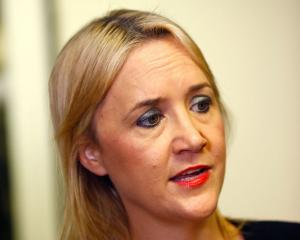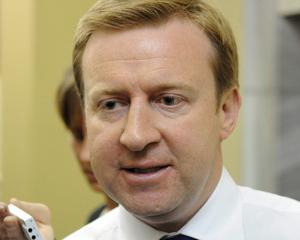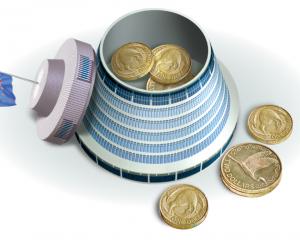
Mr Joyce announced a $2billion family incomes package, which would benefit about 1.3million families in New Zealand by an average $26 per week.
The package increased the $14,000 income tax threshold to $22,000 and the $48,000 tax threshold to $52,000. That could net taxpayers between $550 and $2000 a year.
The independent earners tax credit was discontinued.
Family tax credit rates for young children were raised, although the abatement rate was increased and the threshold was decreased.
Accommodation supplement maximum rates were increased to reflect 2016 rents and eligible students will receive increased benefits of up to $20 a week. In Otago, that works out at $11 a week.

"The movement in the lower tax thresholds is welcomed, but it feels like it doesn’t go far enough.
"It doesn’t solve the ongoing problem of bracket creep, where the tax take increases as people’s wages grow through inflation. This is a one-off adjustment and there was no change to the level where the top tax rate kicks in."
The opportunity was missed to address bracket creep by putting in place an ongoing mechanism to adjust tax brackets according to inflation, he said.
The approach of moving thresholds in an ad hoc manner deferred the problem but did not deal with it.
People who previously received the independent earner tax credit might feel like they had missed and were subsidising everybody else.
While the credit was good in theory because it targeted those low to middle-income people who received no other assistance, it was not taken up by enough people to justify it continuing, Mr Stevenson said.
"The announcement means no-one is worse off and, overall, more people benefit and some complexity is removed from the system."
Mr Joyce said as wages had risen over the past seven years, people on lower and middle incomes had been faced with higher marginal tax rates.
The Budget would provide better rewards for hard work by adjusting the bottom two tax thresholds and lowering the marginal tax rates for low and middle-income earners.
Crowe Horwath Australasia tax advisory managing partner Scott Mason said the the calls for lower business tax were always going to be ignored for "very sound" macroeconomic reasons.
The decision not to reduce personal tax but rather deliver a "fairer" result through a mix of threshold changes and increases to social benefits was more acceptable to the wider electorate — including those on high taxes, a point that might be surprising to most people.
Tax-rate reductions in themselves were not targeted to where the need was greatest, given New Zealand’s progressive tax system. But social benefits had clear needs-based criteria.
The slight movement in thresholds sent a message of fairness to the entire personal tax base.
"Obviously, these changes are deferred until April 1, 2018, so the current government needs to be re-elected," Mr Mason said.
One of the reasons for not reducing business tax was because there was no guarantee the extra funds would be reinvested to drive sufficient economic growth to make up for the fiscal loss of doing it, Mr Mason said.
Federated Farmers president William Rolleston was disappointed there was no movement in the threshold for the top rate of income tax or for the company tax rate.
"Too many taxpayers will continue suffering the effects of several years of fiscal drag and our company tax rate runs the risk of falling behind those overseas."
Taxation
• Tax thresholds moved, giving people earning more than $22,000 an extra $11 a week.
• Disappointment threshold adjustment was not inflation proofed.
• Family tax credit rates increased but abatement rate increased.
• No change to business tax rate.












